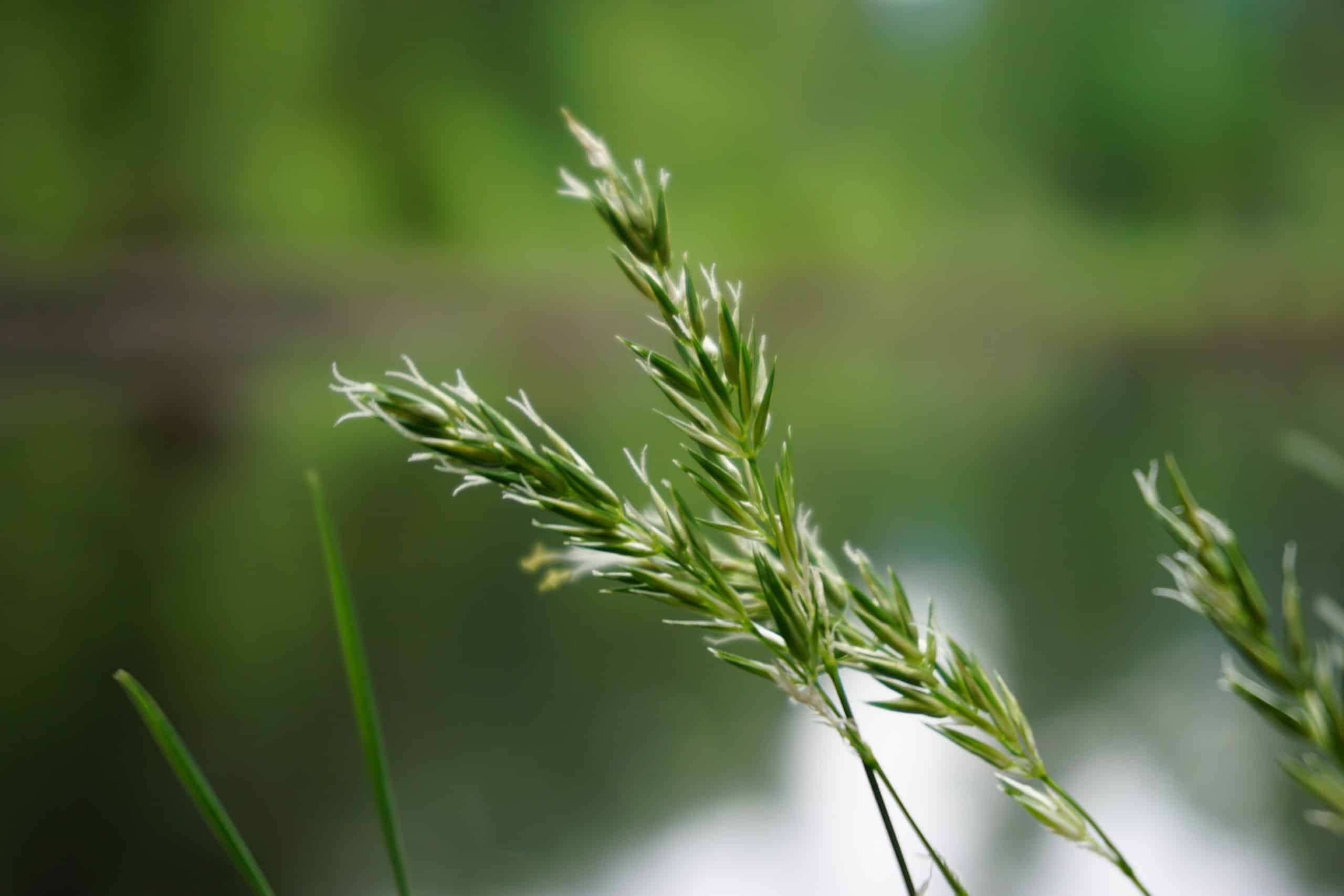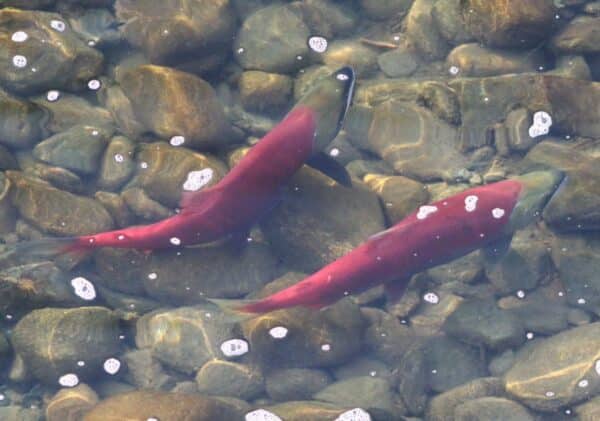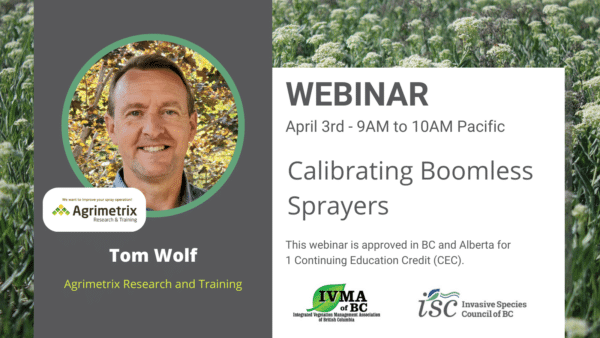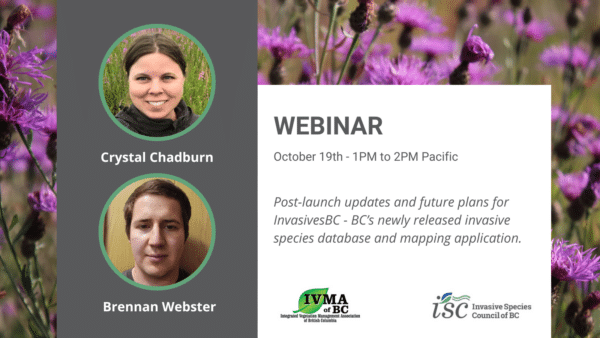By Lisa Houle | September 23, 2022
The Invasive Species Council of BC is pleased to host the online workshop “Holistic Weed Management – A full circle approach!” on October 6 from 6:00-8:00 pm PT.
Integrated Pest Management (IPM) is a ‘decision-making process for managing pests in an effective, economical and environmentally sound way,’ as defined by the Government of BC. From preventative and cultural methods to biological, physical, behavioural and chemical controls, one or more of these techniques can be combined as one management decision.
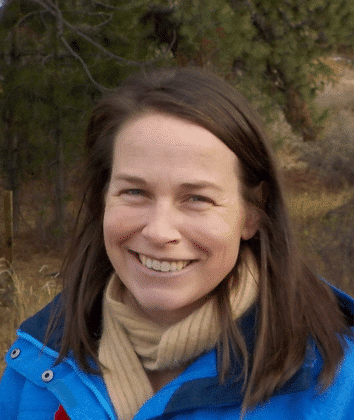
Dr. Catherine Tarasoff, owner of Agrowest Consulting Services, is presenting a new circular IPM process at this workshop – one that focuses on establishing clear land management goals, understanding the biology of the plant community, and the unique traits of the ecosystem.
Katelyn Bissat, ISCBC Manager of Volunteer Engagement and organizer of the event, is excited to have Dr. Tarasoff present her full circle approach.
“This workshop is perfect for individuals new to the land management space or for those looking for new tools and techniques to add to their restoration toolbox,” said Katelyn. “Catherine is a dynamic and engaging speaker with many years of experience with holistic weed management. You are sure to leave this presentation inspired to try something new next field season!”
Catherine grew up in the suburbs of Victoria and spent a lot of her time exploring in the family’s large garden, pressing flowers and labelling them when she was about 7 years old. That was the start of her combined love for really good food and plant biology. Having worked within farming and range systems most of her professional life, Catherine also has a PhD from Oregon State University in Crop Science and Rangeland Ecology with an emphasis on Weed Science. Catherine holds an Adjunct Professor position at Thompson Rivers University (TRU) and is a sessional instructor within the Sustainable Ranching Program at TRU-Williams Lake. Her current research focuses on non-chemical control options for Yellow flag iris (Iris pseudacorus) and Parrots feather (Myriophyllum aquaticum).
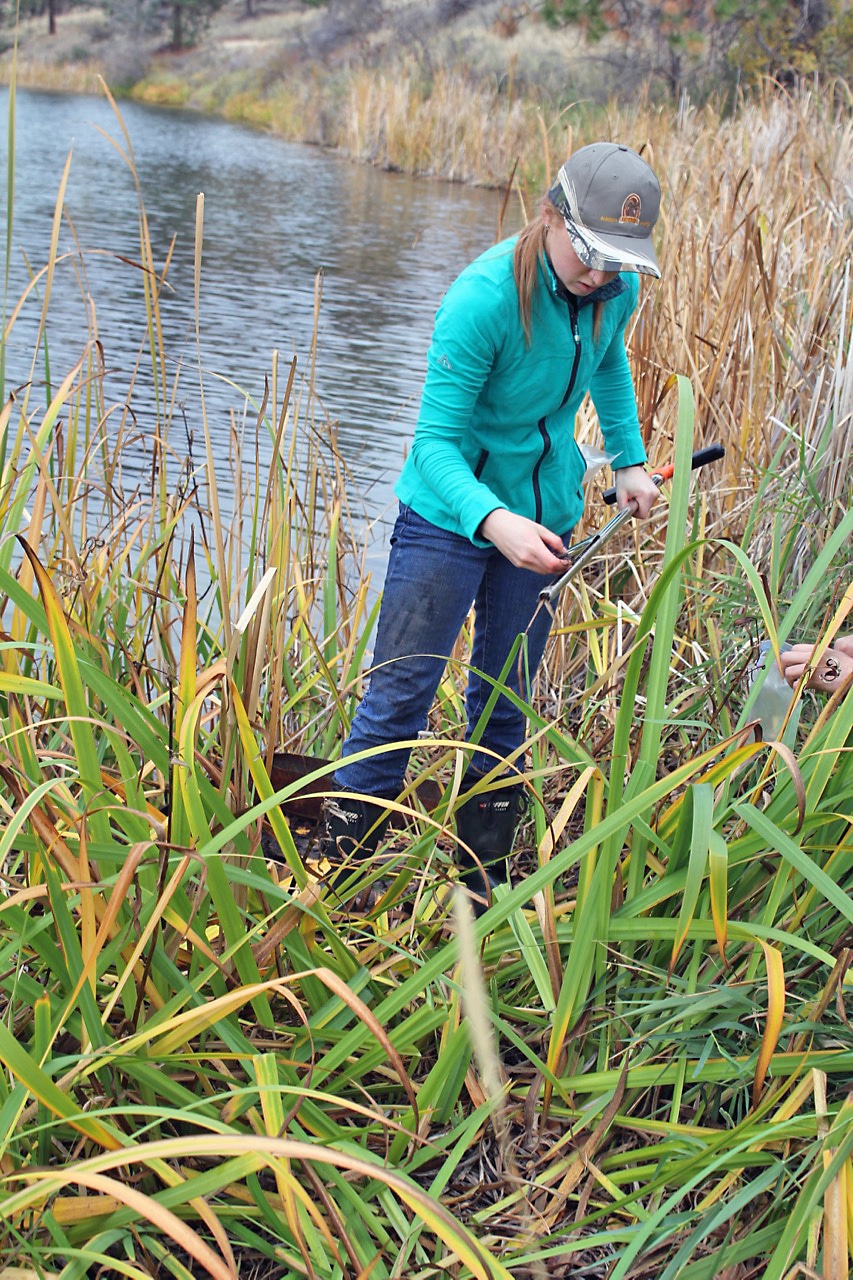
Catherine is passionate about thinking outside the box when it comes to effectively managing invasive plants in our managed systems.
“I think, in general, we have been quite regimented in our approach to invasives – not celebrating or acknowledging incremental successes, only thinking in black versus white or eradication versus failure. I like to think of invasive plant management in square meters – each square meter that is restored is a square meter that can support wildlife, provide habitat, etcetera,” she said.
“I feel like understanding how a plant ‘works’ is like unravelling a mystery into a world that can seem so foreign. Once we really understand how a plant is functioning in the environment, then we can think about looking for the plant’s Achilles heel and using that weakness to control invasive species.”
Registration for this workshop is now open. Register here to claim your spot before the October 5th deadline. This workshop is free for everyone!
Lisa is a Communications and Outreach Coordinator at ISCBC. She values a diverse environment and connecting with others about environmental protection. In her spare time Lisa enjoys spending time at the ocean and beach combing for sea glass. You can reach Lisa at lhoule@bcinvasives.ca
Share


